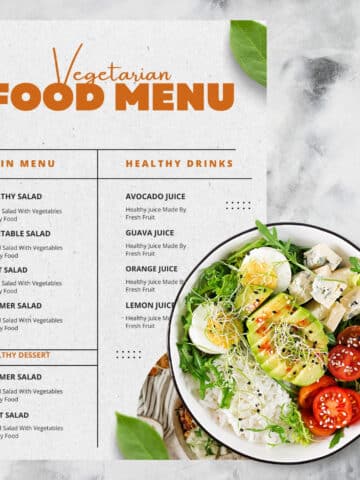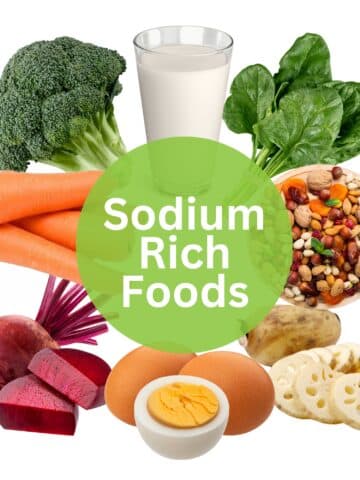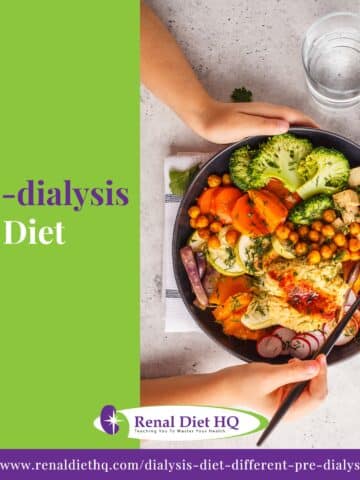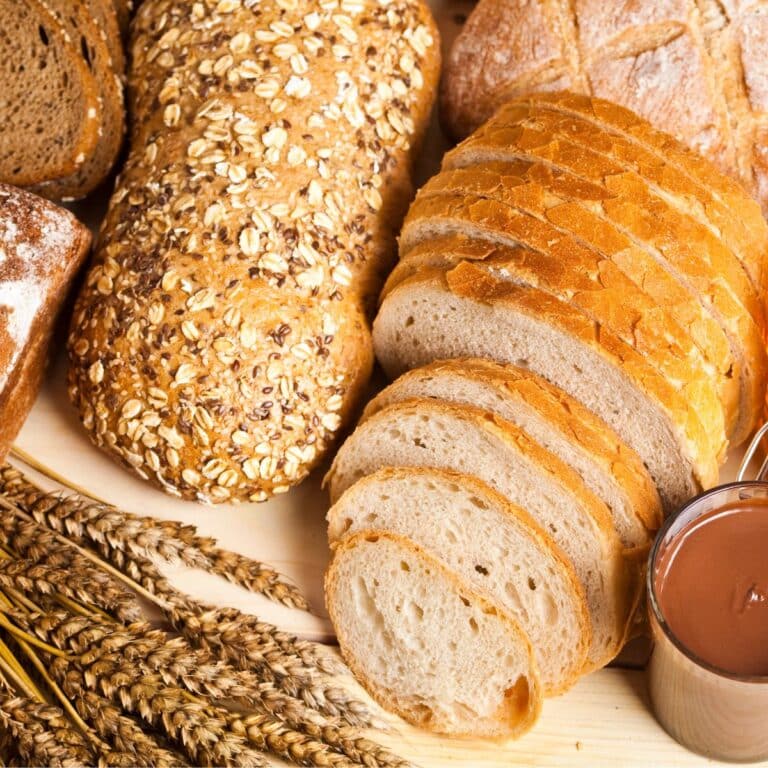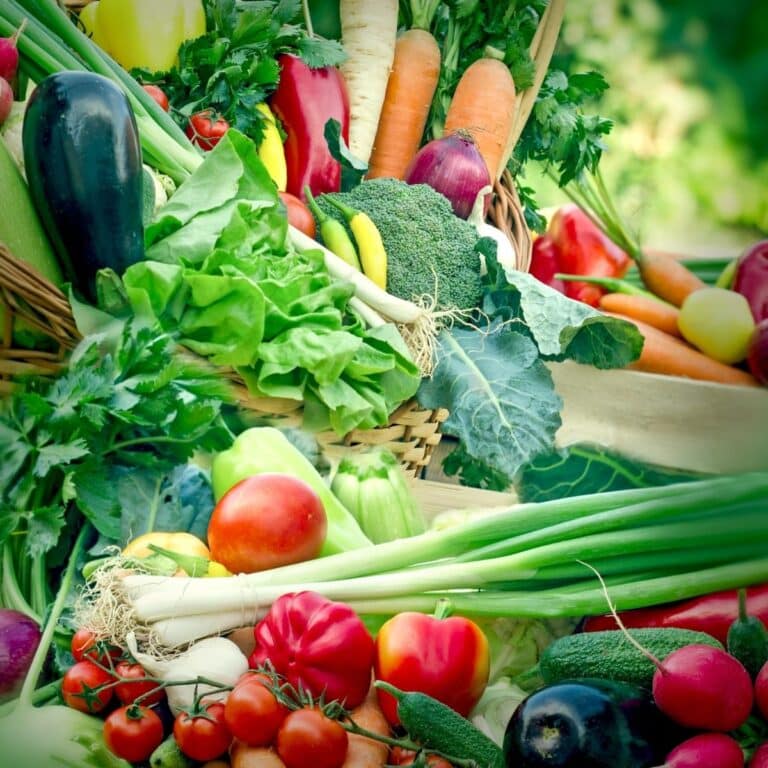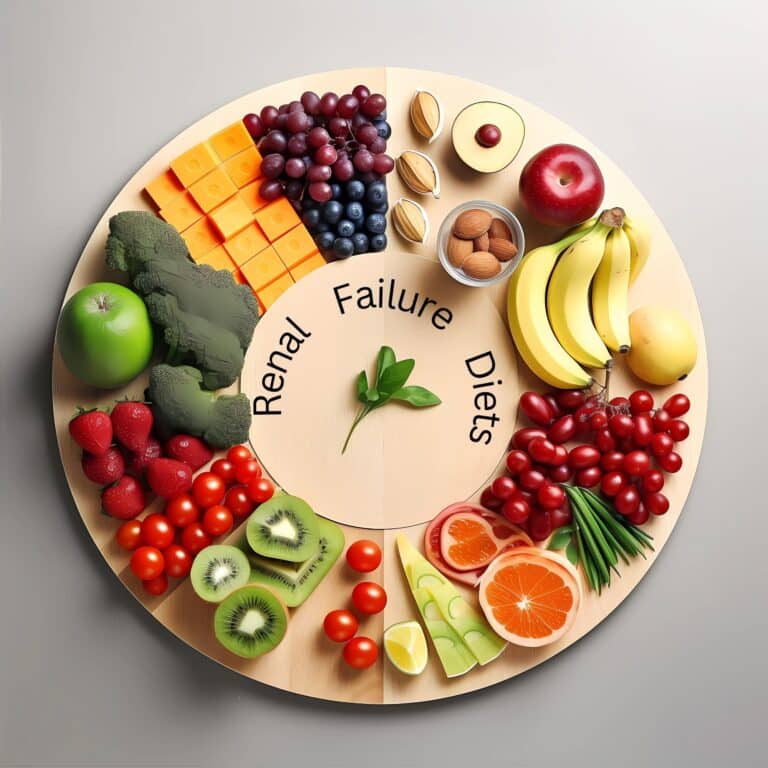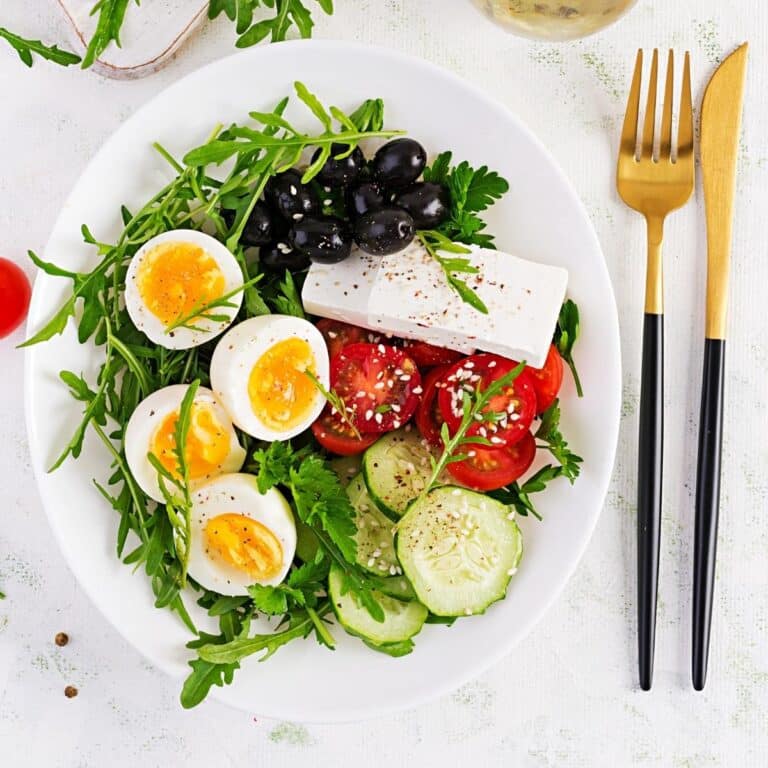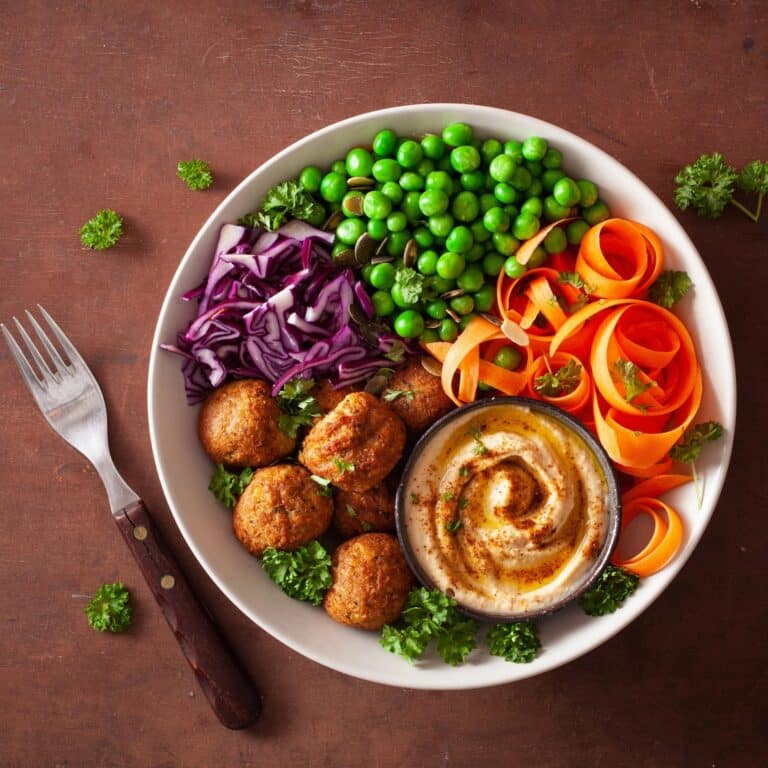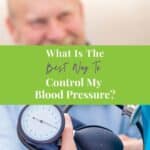Following A Pre-Dialysis Renal Diet
Managing chronic kidney disease (CKD) can be a difficult task, but following a pre-dialysis renal diet can help slow the progression of CKD (progression of symptoms for CKD) and preserve kidney function. You may have been prescribed this diet by your doctor or dietitian to ensure the best results.
Knowing what to eat, how much to eat, and when to eat is important for proper management of your condition. In this article, we'll explore how you can follow a pre-dialysis renal diet in order to delay kidney failure and achieve better health outcomes.
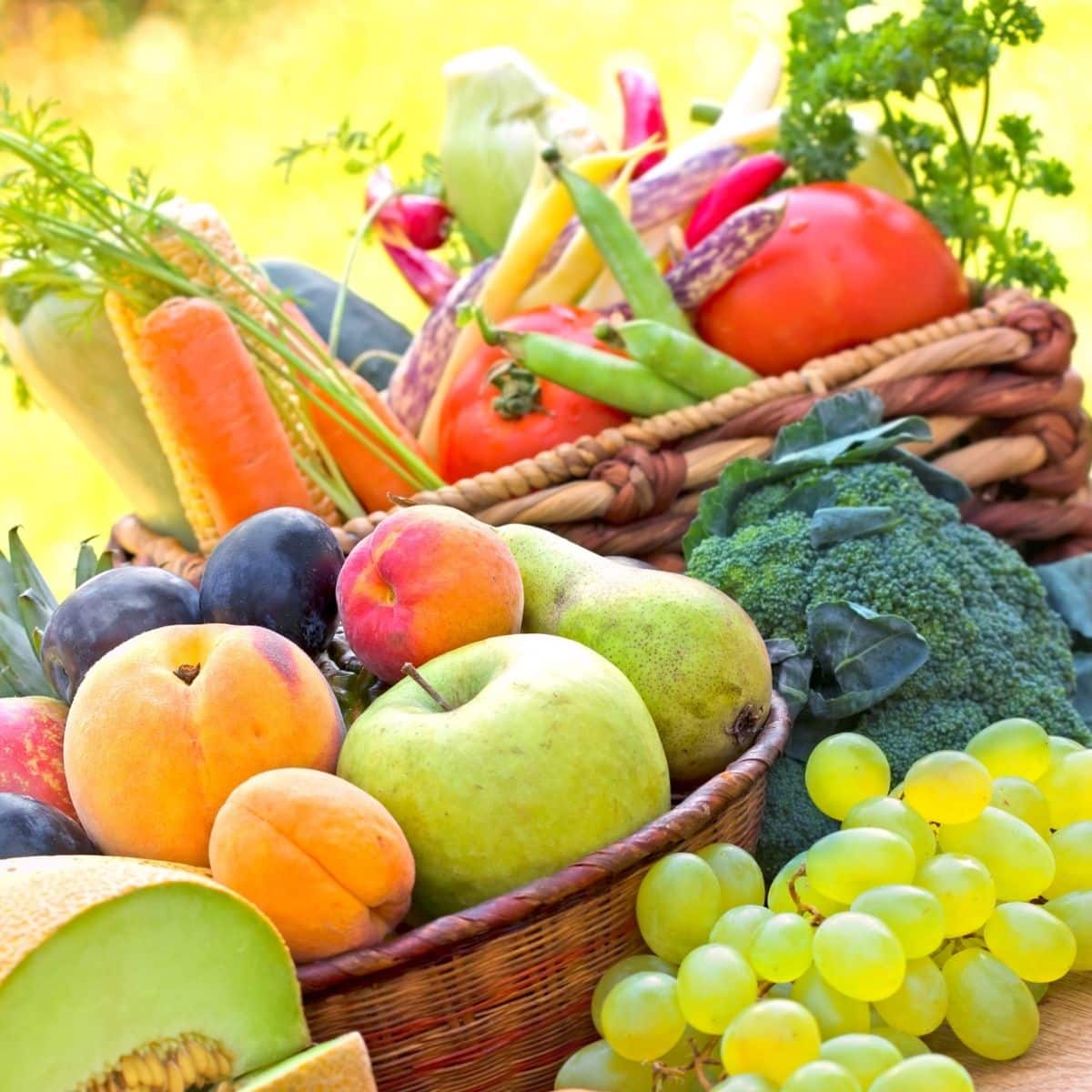
Jump to:
- Key Takeaways
- CKD Stages and Diet
- Follow A Prescribed Eating Plan
- Protein Intake Recommendations
- Nutritious Carbs and Healthy Fats
- Limiting Foods with Little Nutritive Value
- Goal of Delaying CKD Progression
- Importance of Blood Pressure Control
- Fluid Intake Guidelines
- A Kidney Diet Should Help You Reduce your Sodium
- Limit your Phosphorus Consumption
- Indicators of Diet Success
- FAQs for Pre-Dialysis Renal Disease
- A Good Kidney Diet Can Delay Kidney Failure
Key Takeaways
- The pre-dialysis renal diet is designed for early stage chronic kidney disease.
- The diet is personalized based on factors like stage of CKD, age, activity level, and other health conditions.
- The diet includes a prescribed amount of high-quality protein, carbohydrates, and fats, with less protein and more nutritious carbs and healthy fats recommended.
- Following the diet and doctor's advice may delay kidney failure, but not following the diet may cause kidneys to lose function more quickly.
CKD Stages and Diet
The CKD stages and diet must be closely monitored, as following the prescribed eating plan can help slow progression of the disease and delay stage 5 kidney failure.
Knowing the signs and symptoms of each stage of chronic kidney disease (CKD) is important for making informed treatment decisions. Early detection of CKD allows people to take preventative measures to preserve their overall health.
Treatment options depend on the individual's specific needs, but may include lifestyle changes such as a renal diet, medication management, and regular monitoring with kidney function tests.
A pre-dialysis renal diet is tailored to meet someone's unique needs based on size, symptoms, CKD stage (food for your stage of chronic kidney disease), age, activity level, and other health conditions.
The main goal of this diet is to limit waste buildup in order to maintain or improve kidney function. Eating less protein helps reduce strain on damaged kidneys that have difficulty getting rid of protein waste products.
Patients should also focus on nutritious carbohydrates like whole grains and fruits rather than sugary carbs such as candy and soda. Healthy fats are encouraged while processed foods with little nutritive value should be limited or avoided altogether.
Reducing sodium intake is also key when managing high blood pressure associated with CKD or other comorbidities such as diabetes which commonly occurs alongside it.
When glucose levels are maintained within normal range, it can help delay development and slow progression of the disease—a major benefit since uncontrolled diabetes can worsen existing kidney damage over time.
Although following a pre-dialysis renal diet won't cure CKD in itself, it does provide hope by giving patients an opportunity to manage their condition so that they remain healthy longer into their life journey together with their loved ones.
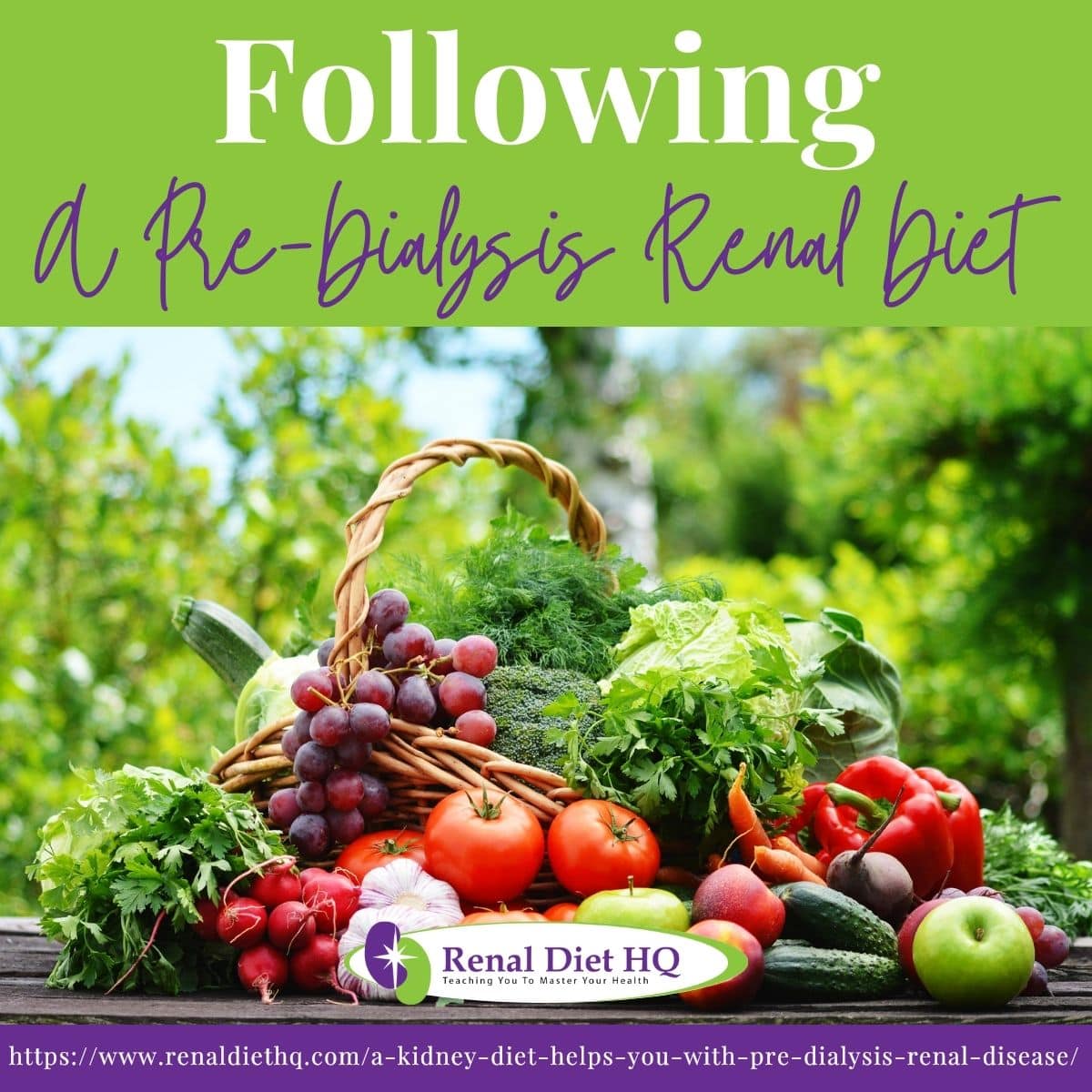
Follow A Prescribed Eating Plan
Eating a personalized diet prescribed by your doctor and dietitian can help slow the progression of kidney disease and delay later stages, especially stage 5.
Meal planning, nutrient balance, portion control, and recipe ideas are important components of a pre-dialysis renal diet.
The goal is to eat the right amount of high-quality protein, carbohydrates, fats as well as limit foods with little nutritive value. When it comes to meal planning, it's important to focus on nutrient balance instead of just calorie counting.
A balanced plate should include healthy proteins such as fish or beans; complex carbohydrates like whole grain breads or brown rice; vegetables and fruits in various colors; and healthy fats such as nuts or olive oil.
It's also important to pay attention to portion sizes so that you don't over-consume calories or nutrients which could contribute to further health complications.
In addition, many people find recipe ideas online when creating healthy meals for a CKD non-dialysis diet. Dietary restrictions such as lowering sodium intake and eating more grains can be difficult at first but delicious recipes make meal time something everyone looks forward to!
Eating out doesn't have to be off-limits either - free kidney-friendly guides provide helpful tips for finding nutritious options when dining out.
By following these guidelines, you may be able to slow down the progression of kidney disease over time; however, it's not a cure for CKD and lab results are the best indicator that the diet is working effectively.
So, stick with it - you'll likely see positive changes in your health if you stay consistent with your individualized eating plan!
For More Recipes and Ideas --->> Get Your Free Meals and Recipes That Are Perfect for Pre-Dialysis Diets, Pre-Dialysis with Diabetes, or Dialysis Diets.
Protein Intake Recommendations
You can help preserve kidney function by eating the right amount of protein for your stage of CKD. The amount and quality of protein you eat depend on several factors, including your stage of CKD, age, activity level, and other health conditions.
High amounts of protein can increase the pressure within the kidneys, which can lead to worsening of renal function, and therefore progression of chronic kidney disease. Hence, most recommend modest protein restriction for pre-dialysis patients with kidney disease.
Protein sources recommended for those with CKD include fish, poultry, eggs, lean meats, dairy products like cheese or yogurt, beans and nuts. Portion control is important as foods high in protein can cause an accumulation of waste products in the body if eaten in excess. Eating a variety of vegetarian options such as tofu or tempeh can provide additional protein alternatives.
When preparing meals with animal proteins, it's important to choose low-fat cooking methods like baking or grilling instead of frying to reduce unhealthy fats. For plant-based proteins, try steaming vegetables and grains like quinoa or brown rice which are also good sources of fiber that are beneficial for keeping blood glucose levels under control.
It's important to remember that not all proteins are created equal, therefore it's best to consult with your doctor or dietitian about which ones will be most beneficial for you based on your individual needs.
A balanced renal diet should include enough high-quality proteins while limiting processed snacks that have little nutritive value without sacrificing taste and enjoyment from food. By following these guidelines, you can help delay later stages of CKD and keep your kidneys healthy longer!
Nutritious Carbs and Healthy Fats
Choose nutritious carbs and healthy fats to help keep your kidneys functioning optimally! Balancing macronutrients, fiber sources, meal planning, and healthy snacking are all important components of a CKD non-dialysis diet.
Carbohydrates provide a source of energy for the body, but it's important to choose complex carbohydrates like whole grains that are rich in fiber. When choosing carbs, try to avoid processed food with added sugars or simple carbohydrates like white breads and pastas.
Eating more plant-based proteins (plant based renal diet recipes) such as beans, lentils, nuts, and seeds can also help balance your macronutrients while providing extra fiber.
Fats should be included in the diet but in moderation due to their high calorie content. Try to focus on unsaturated fats such as olive oil or avocado, which have heart health benefits and contain essential fatty acids that cannot be made by the body.
Consider adding some healthy snacks into your daily routine such as trail mix with nuts and dried fruit or hummus with fresh veggies. This will give you energy throughout the day without feeling deprived.
Try incorporating a variety of nutrient-dense ingredients - think colorful vegetables plus lean proteins - into each meal to ensure you're getting enough vitamins and minerals while still limiting sodium intake. Experimenting with creative carb alternatives like quinoa or spaghetti squash can also add flavor to many dishes while keeping things kidney-friendly!
It's important to remember that everyone's dietary needs are different, so make sure you follow the advice from your doctor or dietitian when creating meals for yourself or loved ones affected by chronic kidney disease.
Limiting Foods with Little Nutritive Value
Reduce your intake of foods with little nutritive value to help keep your kidneys healthy! Eating nutrient-dense foods is important for maintaining kidney health. Foods that are high in empty calories, such as chips, candy, and soda, should be limited or avoided altogether.
Instead of reaching for these snacks (kidney friendly snacks), opt for healthier options like fruits and vegetables. These snack options provide essential vitamins and minerals that can help support kidney function. When choosing meals and snacks, it's important to be mindful about what you're eating.
Look for healthy substitutions when possible; instead of white bread, try whole grain bread or a wrap made from whole wheat flour. Choose lean proteins like fish or chicken over processed meats like hot dogs or bacon. And don't forget the importance of fiber – beans, nuts, seeds, and oats are all great sources of fiber that can help reduce waste buildup in the kidneys.
Making small changes to your diet can have a big impact on your overall health – especially if you have chronic kidney disease. By limiting foods with little nutritive value and replacing them with nutrient-dense alternatives, you can ensure that your body is getting the nutrients it needs while also helping to preserve kidney function.
Goal of Delaying CKD Progression
The goal of following a CKD non-dialysis diet is to delay the progression of chronic kidney disease and preserve kidney function. This can be achieved by making lifestyle changes, such as managing symptoms through dietary modifications, making medication management (diet vs medication for CKD improvement) part of daily routine, monitoring progress with lab results, incorporating emotional support into treatment plan, and implementing lifestyle changes to reduce stress on kidneys.
Managing symptoms through dietary modifications is key in delaying the progression of CKD. Eating foods that are low in sodium, protein, and phosphorus helps reduce waste buildup in the kidneys.
Choosing nutritious carbohydrates and healthy fats instead of high-protein foods can also help slow down the progression of CKD. Additionally, controlling blood glucose levels is important for those with diabetes as it delays development and slows down the progression of kidney disease.
It's important to follow your doctor's advice when it comes to managing your diet for CKD. A personalized eating plan based on size, symptoms, stage of CKD, age, activity level, and other health conditions should be created by a dietitian or nutritionist.
Not following this prescribed diet may cause kidneys to lose function more quickly than if you were following it correctly.
It's also beneficial to have access to free kidney-friendly cookbooks and eating out guides so that you can make informed decisions about what you eat while still enjoying meals outside your home.
Importance of Blood Pressure Control
Maintaining a healthy blood pressure is essential for delaying the progression of CKD, as uncontrolled high blood pressure can worsen kidney damage. Effective management of high blood pressure requires medication adherence and lifestyle modifications, including stress reduction.
It's important to monitor your blood pressure regularly to ensure it stays within the normal range. This will help keep your kidneys in good working order and delay any further progression of CKD. Your doctor may suggest lifestyle changes such as eating a healthier diet, reducing salt intake, increasing physical activity or quitting smoking.
Medications prescribed by your doctor should be taken exactly as directed in order to properly control your blood pressure.
Furthermore, it's important to take regular breaks from work and other activities that could cause stress or anxiety. Making these lifestyle changes can have a positive impact on kidney health and reduce the risk of kidney failure.
Taking medications as prescribed and making sure you monitor your blood pressure will help you maintain good overall health and prolong stages one through four of CKD without needing dialysis treatment or a transplant later on (diet for renal dialysis patients).
Fluid Intake Guidelines
Staying hydrated is key for managing chronic kidney disease, so it's important to know the fluid intake guidelines (fluid restriction diet). The amount of fluids you need each day depends on your size, activity level, and health conditions.
It's important to monitor your thirst and dehydration levels throughout the day, noting any changes in urine output or color and any fatigue or dry mouth.
It's also important to avoid consuming too much fluid as this can put extra strain on already damaged kidneys. Your doctor or dietitian will provide personalized recommendations about how much fluid you should have each day, including how much water, tea, juices, milk products, and other beverages are allowed.
For most patients, the limit is set at around 32 ounces per day. However, specific guidelines to follow for a kidney diet are often personalized, so to be sure, check with your kidney doctor first.
It's best to get into a good habit of tracking all beverages consumed during the day in a food journal so that you can stay within your recommended daily limit.
Having an individualized kidney-friendly eating plan created by a dietitian that takes into account your health history and lifestyle needs is essential when trying to maintain healthy levels of hydration with a CKD non-dialysis diet.
Monitoring your thirst signals as well as regularly checking urine output and color are great ways to make sure your body has enough fluids without going overboard.
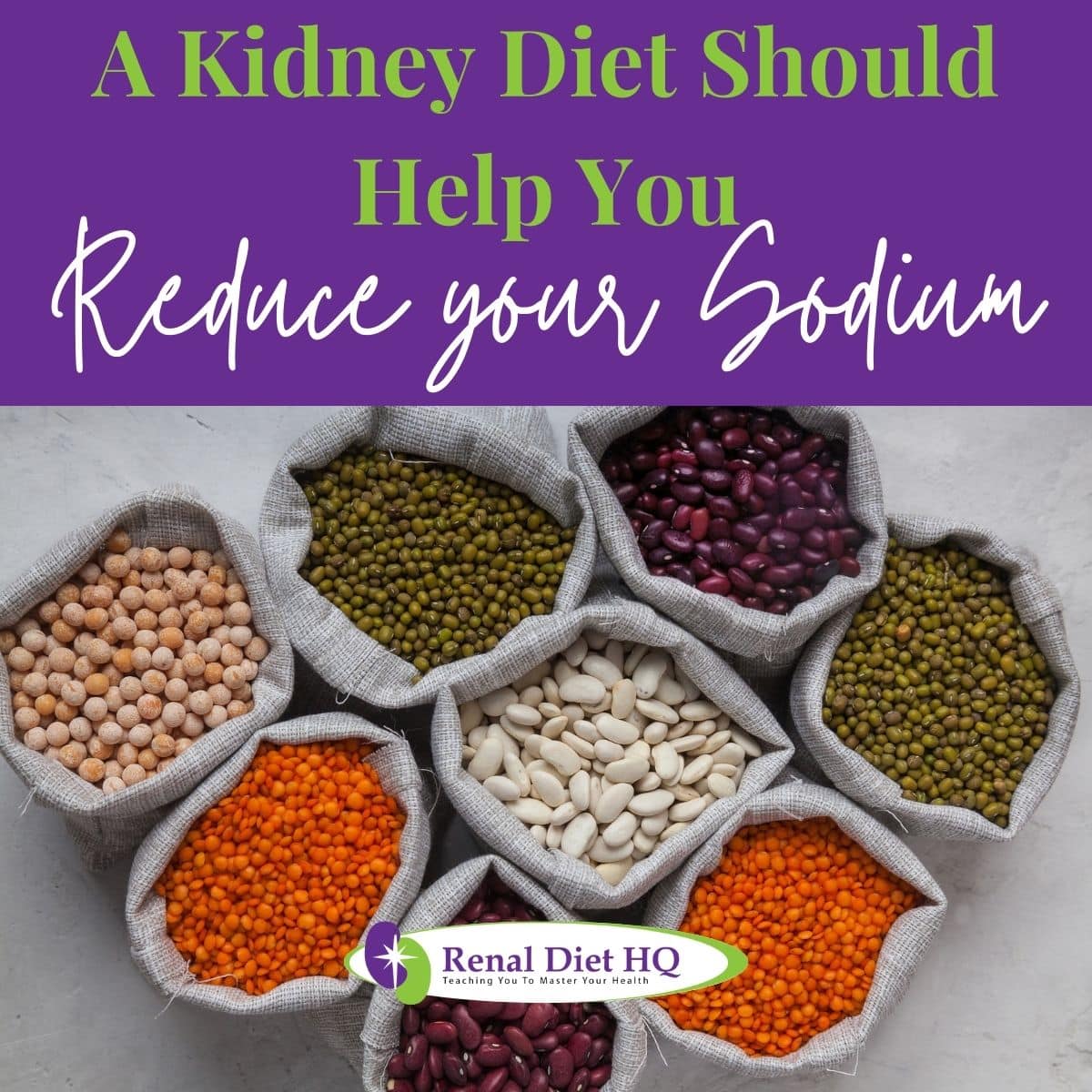
A Kidney Diet Should Help You Reduce your Sodium
For a healthy kidney diet, people also need to limit their sodium intake which comes not only from table salt but also from processed meats, fast foods and even from pickles. Check out these fast foods that are okay for kidney disease.
Many commonly eaten foods contain sodium and it's important to read food labels to know how to stay below the recommended amount for your kidney diet plan.
Seasonings like soy sauce also contain sodium as well as baking mixes and cereals too. People should also veer away from monosodium glutamate as it can also increase the sodium content in the diet.
A healthier diet that would be friendly to the kidneys would like fresh fruits and vegetables instead of processed or preserved foods that contain harmful preservatives. Most canned vegetables and beans can be drained and rinsed to lower the amount of sodium by about 30-40% or more.
A quick guide to follow is that it is recommended for renal patients to consume no more than 2000mg per day of sodium.
Limit your Phosphorus Consumption
Though phosphorus is needed, especially by the bones and the teeth, those who have problems with their kidneys should also limit phosphorus-rich foods in their kidney diet. Some foods that should be limited include carbonated drinks, dairy products as well as nuts and coconuts too.
Those who are suffering from chronic kidney problems will live longer if they follow a safe and healthy diet so that they may avoid having to go for dialysis or for kidney transplant. There are various diet regimens that are carefully planned in order for people to be able to help their kidneys to function better.
It is best to keep your phosphorus consumption to under 800–1,000 mg/day. You can keep track of this by knowing how much phosphorus is in each item you consume and by reading ingredient labels.
Those who would like to create or make their own kidney diet may also do so but they would need to consult with professional dietitians or nutritionists as well as with their medical doctor or nephrologist in order to be able to make one that is safe and effective for their health and well-being.
The best option for them, though, is to purchase online a ready made meal plan as well as a grocery list that has been carefully and meticulously prepared by a professional registered dietitian.
This would ensure that they are following a kidney diet meal plan that would help their kidneys to function with ease and without any problem. This may also prevent their kidney disorder from worsening and it may save them from having to undergo dialysis by following the kidney diet carefully and easily.
Indicators of Diet Success
It's important to track your progress while following a pre-dialysis renal diet. Monitoring your diet and lifestyle changes is essential for maintaining kidney health and preventing further damage. Dietary restrictions can be difficult at first, but with dedication you can successfully adapt to the new foods that are part of the pre-dialysis renal diet.
| Monitor | Action |
| Diet | Track food intake and adjust as needed based on stage of CKD. |
| Progress | Record lab results, weight, blood pressure, glucose levels regularly. |
| Lifestyle Changes | Exercise regularly according to doctor's orders and follow prescribed dietary restrictions. |
| Dietary Restrictions | Limit protein intake as directed by doctor or dietitian; avoid high sodium foods; choose nutritious carbs and healthy fats instead of processed carbohydrates; drink plenty of water; limit fluid intake if necessary. |
When tracking your diet, it's important to note any lifestyle changes that have been made in order to better adhere to the renal diet plan - such as exercising regularly or making dietary adjustments as recommended by your physician or registered dietitian.
Additionally, make sure you're aware of all dietary restrictions associated with the pre-dialysis renal diet so that you can adjust accordingly - such as limiting protein intake, avoiding high sodium foods, choosing nutritious carbs and healthy fats over processed carbohydrates, drinking plenty of water throughout the day and limiting fluid intake if necessary (as dictated by stage).
By monitoring progress through regular checkups with your doctor or nephrologist - this includes recording lab results, weight measurements and blood pressure readings - it will help you identify how successful your current course of action is for managing chronic kidney disease (CKD).
FAQs for Pre-Dialysis Renal Disease
If you think you may be in the early stages of CKD, it's important to pay attention to any symptoms that may arise. Common signs include fatigue, decreased appetite, nausea, and vomiting (signs and symptoms of kidney failure).
Swelling in hands or feet, changes in urination patterns or amount of urine produced, and pain or pressure in the back or side below the ribs are also indicators.
However, early stages of CKD are often asymptomatic. Hence to ensure that your kidneys are functioning well, you should undergo regular check ups with your doctor. They can also recommend lab tests that can determine your kidney function, which can indicate CKD even if you don’t experience any symptoms.
When it comes to your diet, you should avoid red meat and limit sodium (following a low sodium kidney diet). It's important to monitor your potassium intake and drink plenty of fluids throughout the day.
Eating smaller meals and keeping an eye on portion sizes is key for maintaining healthy kidney function.
Eating a balanced diet low in saturated fats and salt can help reduce protein waste buildup in the kidneys. If left unchecked, this buildup can cause further damage.
Why do you need a pre-dialysis diet plan? If you have any questions or concerns about what specific foods to avoid with a pre-dialysis renal diet, speak with your doctor or dietitian for personalized advice.
The best way to control your blood pressure is by monitoring your symptoms, fluid intake, medication compliance, salt intake, and blood sugar. You should monitor these levels regularly and consult with your doctor if any of them are out of range.
If you find that your blood pressure is high, reducing your salt intake can help reduce it. Exercise and maintaining a healthy weight also contribute to good blood pressure levels.
Medications may be prescribed as well to help keep things in check. Additionally, make sure you're compliant with taking the right dosage at the right times for maximum effect.
Your doctor may also recommend daily blood pressure monitoring to help make sure that your blood pressure stays within normal ranges.
It's important to get your lab results checked regularly (creatinine lab values for kidney disease) in order to track changes in your kidney function and understand the results.
Keeping an eye on your lab work is key for managing medications, monitoring symptoms, and limiting sodium intake.
Schedule regular checkups with your doctor so that they can review any new developments and make any necessary adjustments. People with kidney failure require frequent lab tests, often monthly. This may be different depending on your stage of kidney disease so it’s still best to work closely with your doctor.
Staying on top of your lab results will help you better manage your CKD diet and keep your kidneys functioning optimally.
Eating out while following a pre-dialysis renal diet can be a challenge, but it doesn't have to be. With careful planning and awareness of menu options, you can still enjoy eating out safely. Check out this book on eating out with kidney disease.
When choosing your restaurant, look for establishments that offer healthier menu options such as lean proteins and more nutritious carbs like whole grains or fresh vegetables. Be mindful of portion size and opt for smaller portions when possible.
Ask questions about the preparation of dishes to ensure they're cooked without too much sodium or unhealthy fats. Avoid fried foods and try to stick with grilled or baked alternatives.
To help make eating out easier, many restaurants have nutrition information available online so you can prepare ahead of time and make more informed decisions when dining out.
A Good Kidney Diet Can Delay Kidney Failure
Individuals who are suffering from kidney problems should strictly follow a kidney diet regimen (kidney diet beginner training). This may be one of the most difficult diseases to deal with but for those who are determined to survive it and live longer will have to do all that they can to adhere to their meal plans.
The first step towards a healthier stance is to work on menus or recipes that will ease the functions of the kidneys thereby reducing the stress that causes it to be overworked and tired most of the time. This may also improve the functions of other body systems as well in the process just by making the kidneys more functional.
With consistent attention to blood pressure control, fluid intake, and nutritious food choices, you can be successful in delaying kidney failure.


